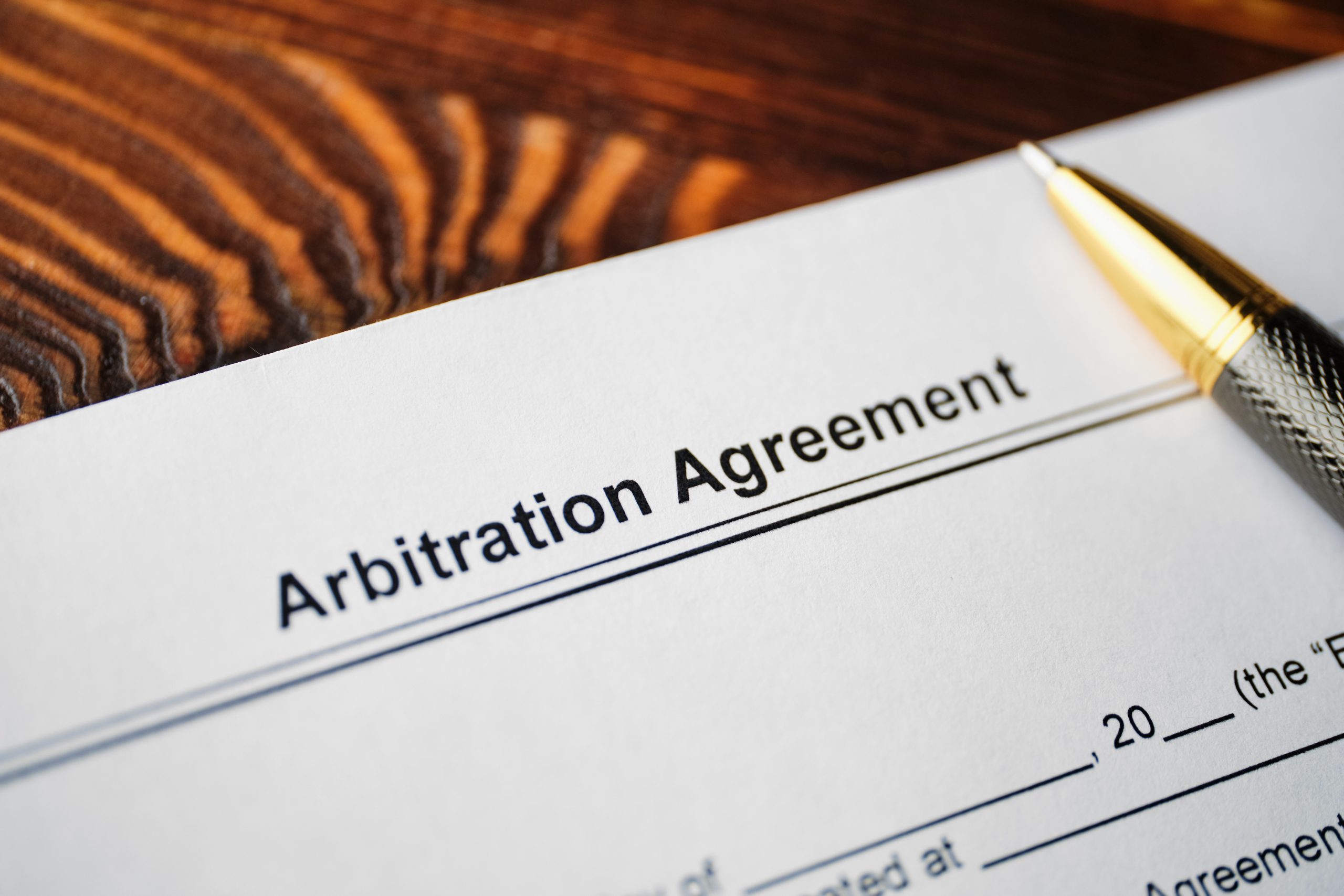Arbitration
Bennett Injury Law is a leading domestic and international arbitration law firm. We provide the highest-quality legal representation for complex domestic and international commercial, personal injury, and international arbitrations. We cover diverse jurisdictions, arbitral institutions, and industry sectors and work under numerous laws and in different countries.
Bennett Injury Law Arbitration Lawyers provide:
Excellence in legal analysis Insight into winning case strategies and arguments Mastery of all procedural techniques used in domestic and international arbitration and mediation Legal representation of the highest quality before diverse arbitral tribunals Fierce and uncompromising representation of our clients’ interests
The best value available for high-quality arbitration legal representation A proven track record for large and complex arbitrations Constant accessibility by clients from all jurisdictions (in person and by videoconference)
As a fellow of the Chartered Institute of Arbitrators, Richard D. Faulkner guides all of our other trained arbitration lawyers to provide the highest-quality legal representation for complex domestic and international arbitrations. Our experience and outstanding track record with unbeatable rates for high-quality arbitration legal representation in order to offer exceptional value to its clients.
Our arbitration lawyers have provided legal representation in hundreds of commercial, personal injury, and construction arbitrations, for clients including businesses of all sizes, foreign investors and State entities, in arbitrations with their seats in Europe, North America Central America, the Middle East, sub-Saharan Africa and Asia. We have provided legal representation for AAA, ICC, ICSID, LCIA, ICDR, SIAC, SCC, DIAC, HKIAC, JAMS, CICA, PCA, OHADA and ad hoc (often UNCITRAL) arbitrations, as well as under the rules of lesser-known institutions, establishing an excellent track record.
Richard D. Faulkner
As a Fellow of the Chartered Institute of Arbitrators and holder of a Diploma in International Commercial Arbitration, Richard D. Faulkner is one of the foremost arbitration experts in the country... Read More
Many Different Laws
Bennett Injury Law is capable of providing legal representation under nearly all laws. We have previously provided legal representation for arbitrations under English law, French law, Swiss law, Spanish law, Mexican law, German law, Chinese law, Turkish law, public international law, various American laws, various Canadian laws, and the laws of many other common law and civil law jurisdictions.
Clients and Co-Counsel
Bennett Injury Law works hand-in-hand with our clients and in-house counsel, allowing them to play a significant role in the resolution of their dispute, if they so desire. We also collaborate with co-counsel throughout the world, who are seeking transparent assistance with arbitrations for clients and a firm that rigorously respects the boundaries of pre-existing client relationships.
What is an Arbitration
Arbitration is a private alternative form of conflict resolution used commonly as a quicker and less expensive solution than litigation. A private, paid arbitrator or panel of arbitrators meet with both sides of an argument and their attorneys to decide the dispute.
What Constitutes an Agreement to Arbitrate?
Both parties involved in the dispute must agree to arbitrate. Although signing is not necessary, the parties must have a written agreement for one party to enforce the arbitration against the other. The location of where the arbitration agreement is written is unimportant, as long as the two parties agree to arbitrate.
What if an Employer Asks You to Join Arbitration?
An employer can write up an agreement and require you to sign it, along with an arbitration agreement, on threat of losing your job. Employers can also amend their policies to include an agreement to arbitrate, even without an employee’s signature because the agreement is mutual.
In 2021, Bennett Injury Law obtained a $195,000 settlement, putting $109,353.01 in our client’s pocket after paying attorney’s fees and all expenses... Read More
How Are Arbitration Agreements Enforceable?
In the United States, the Federal Arbitration Act (FAA) establishes a prominent national method of enforcing arbitration agreements. Under the FAA, arbitration agreements are enforceable where interstate commerce is implicated or where a transaction overseas takes place. The power to enforce a written agreement to arbitrate in the United States is very broad.
Texas has its own arbitration act that establishes a written arbitration agreement is enforceable if the agreement is to discuss a conflict that is present at the agreement time or a conflict that emerges after the agreement takes place. Agreements to arbitrate are generally found enforceable if both parties present themselves with intent of solving their problem together.
For employees, simply being aware of an arbitration policy coinciding with employment with the company positing the arbitration is typically enough to create an enforceable agreement. The agreement may be revoked if a law is present for revocation of the contract. The enforceability of an arbitration agreement can be attacked by the arbitrator if he or she chooses to. If an agreement has been formed, yet only one side needs to arbitrate, such as an employee or consumer who needs to resolve a dispute, the absence of obligation to a second party essentially makes it unconscionable.
Positive aspects of Arbitration
Arbitration is often sought out as a cheaper and faster way to resolve conflict while avoiding litigation, court, trials, and juries. Arbitration can make conflicts easier to resolve and avoid conflict escalation. Compared to litigation, arbitration can be much faster. Arbitration is often less formal than court. Arbitration agreements, contrary to litigation, are generally private, so the final cases resolution can also be kept private.
Negative aspects of Arbitration
Arbitration can be significantly more expensive than litigation. Arbitrations may tend to favor large companies with more money than consumers or employees. Appeals are extremely difficult, almost regardless of how unfair the arbitrator’s decision is. The arbitrators may not be fully objective as large companies benefit from being repeated players in the area and repeatedly selecting arbitrators that rule in the companies’ favor.
Arbitrations are Commonplace
Arbitrations are becoming more pervasive actively. Company’s tend to favor arbitration’s because it avoids the accountability provided by juries. Companies also generally prefer the privacy arbitrations offer.
Advice for Employees and Consumers
Employees and consumers should be knowledgeable about the terms of their arbitration agreements by reading the agreements the enter with companies, to see if they necessitate arbitration. Companies are required to notify their employees and consumers about any changes in their arbitration.


